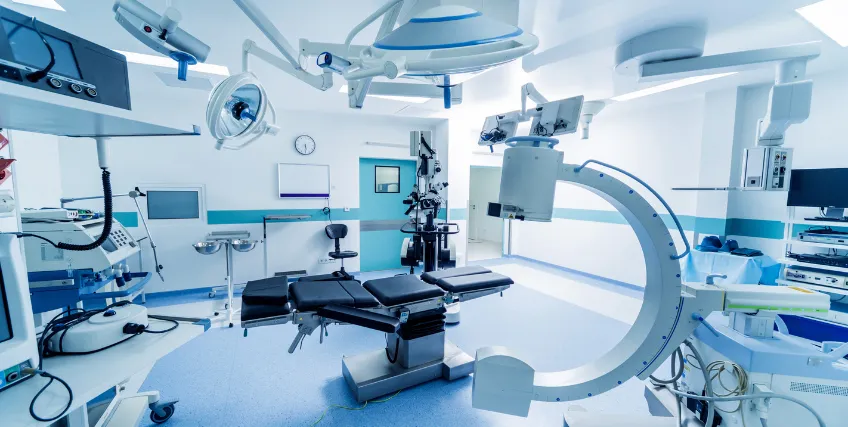Looking for Business Financing?
Apply now for flexible business financing. Biz2Credit offers term loans, revenue-based financing, lines of credit, and commercial real estate loans to qualified businesses.
Set up a Biz2Credit account and apply for business financing.
Running a modern clinic in today’s time is more complex than it appears to the eye. Medical professionals often juggle patient care alongside the demands of running their clinics. Business decisions also shape financial outcomes over time. However, one important choice to make is which loans for doctors should be considered for growing their medical practice.
Many physicians get confused between short-term and long-term loans for doctors. That is why choosing the right financing option is important not just for growing the business, but also for personal financial stability.
This article will help medical professionals understand how both loans for doctors work. It also explores loan options, repayment structures, and practical examples to support informed decision-making. This guide simplifies the comparison to help today’s busy healthcare entrepreneurs make confident, informed decisions.
Why Do Doctors Need Loans
Doctors need small business loans to manage their medical practice obligations that extend beyond patient care. Since operating a clinic requires a wide range of expenses and strategic investments, it is important for them to consider options for loans for doctors.
These loans support purchasing high-end diagnostic tools, laboratory software, medical billing systems, and professional liability insurance. Additionally, as practice evolves, doctors may require funds to onboard specialized staff, install telemedicine platforms, or relocate to more accessible facilities to serve their community better.
Here are some reasons why loans for doctors are necessary.
-
Clinic Setup: Borrowers often require small business loans to get started and furnish clinical spaces for their medical practice.
-
Medical Equipment: Loans for doctors can be used to purchase expensive specialty tools, machines, and diagnostics as buying these can exceed standard personal loans or credit card limits.
-
Practice Expansion: Growing a medical business demands larger loan amounts and extended repayment terms.
-
Cash Flow Gaps: Medical practice loans can be used to cover reimbursement delays from insurers that can affect working capital.
-
Debt Consolidation: Also, refinancing multiple debts into one fixed rate loan simplifies loan repayment.
Understanding Short-Term Loans for Doctors
Short-term loans are financing options that typically run for ess than a year up to 18 months. These loans are best for covering urgent financial needs that cannot wait for traditional financing options. These loans for medical professionals can be used for unplanned equipment breakdowns, seasonal cash flow gaps, or last-minute upgrades before inspections.
These short-term loans for doctors are often unsecured and processed quickly, so that doctors can stay operational without long-term financial commitments.
Features of a Short-Term Loan
-
Loan Amount: The short-term loans for doctors can range from $100 to $100,000
-
Monthly Payments: The monthly payments are higher due to shorter loan terms and faster repayment schedules.
-
Interest Rate: These loans for doctors can include variable or fixed rates depending on underwriting and credit scores.
-
Loan Program Fit: These loan programs are suitable for fast-moving borrowers who have immediate but short-lived needs.
Example: A DPM (Doctor of Podiatry) opening a podiatry clinic might need a $40,000 loan to cover equipment. For this,a short-term loan can be used to keep the payment options simple and flexible.
Understanding Long-Term Loans for Doctors
Long terms loans for doctors are often structured for repayment across 3 to 25 years. These loans are more common for capital-intensive business goals.
Features of a Long-Term Loan
-
Loan Amount: These loans come with larger loan amounts and are used for acquiring commercial real estate or expanding services.
-
Repayment Terms: They offer lower monthly payments, often involving fixed-rate or adjustable-rate mortgage style plans.
-
Eligibility: These loans for doctors require a strong credit history, checking account activity, savings account balances, and low debt-to-income ratio (DTI).
-
Home Buying Tie-ins: Sometimes linked to physician loans, which include home loan or physician mortgage options with low down payment.
Example: A DDS (Doctor of Dental Surgery) plans to purchase a primary residence for his medical practice, then he can opt for physician mortgage loans. These mortgage loans typically don’t require private mortgage insurance (PMI) and are often backed by equal housing lenders or member FDIC banks.
For this, long-term loans for doctors can be a good option. However, these require full documentation and detailed disclosures during the application process.
Medical doctors seeking flexibility may also explore home equity line of credit options. These lines can help with clinic upgrades or high-cost emergencies while offering lower APRs. If structured properly, long-term financing helps maintain positive cash flow, especially for medical professionals with multiple locations or specialties.
Differences Between Short-Term and Long-Term Loans for Doctors
Here are some important differences between short-term and long-term loans for doctors.
| Features | Short-Term Loans for Doctors | Long-Term Loans for Doctors |
|---|---|---|
| Loan Tenure | 3-18 months | 3-25 years |
| Monthly Payments | Higher, aggressive repayment | Lower, spread-out payments |
| Interest Rates and APR | Higher APR, quick payoff | Lower APR, more total interest |
| Application Process | Possible quick loan approval | Requires underwriting, credit report checks, and more detailed loan application |
| Risk and Flexibility | Less commitment, more frequent payments | Better suited for fixed assets with long depreciation |
Important Factors Doctors Should Consider When Taking Financing
When choosing any loan option, medical professionals should think about their financial needs and obligations. Here are some important factors to consider when seeking business financing.
-
Financial Needs: You should know the purpose of the loan, whether you need to set up your clinic, or purchase medical equipment. Then select the best loan option based on your needs.
-
Credit Score: This affects your credit approval and loan interest rates. A lower credit history may limit your access to better loan terms.
-
Debt-to-Income ratio & Income Stability: Keep your DTI ratio below 30% as it impacts risk perception during underwriting.
-
Repayment Structure: Always choose flexible loan payments and also check for prepayment penalties and origination fees.
-
Refinancing Options: There are some loans for doctors that offer refinancing benefits after a period of on-time repayment.
-
Disclosures: Make sure to read disclosures before signing any loan agreement.
Which Loan Type Makes More Sense
Now the question is which loan type would make more sense for the doctors. You should select between a long-term and short-term loan option based on your business needs. Both options come with a set of disadvantages that must be evaluated through the lens of your business priorities and timelines.
For instance, a medical specialist planning to upgrade imaging equipment might consider how fast the equipment depreciates, how soon ROI is expected, and how consistent revenue is. These elements play an important role in choosing the loan structure that provides the most flexibility and financial control.
The best solution can depend on several variables and might not look the same for every doctor. Here are some examples for context:
-
New Medical Student or DMD Starting a Clinic: The best option is short-term loans or small business loans to get started. These loans may help meet initial financial needs fast.
-
Veterinarians Expanding Facilities: A conventional loan with a longer repayment term will be a much better option so that the monthly payments become manageable while investing in new space.
-
Medical Doctors Needing Housing for Clinics: Doctors can consider physician loans or mortgage loans for home buying to establish their clinic.
-
Refinance Case: A practicing doctor may use refinancing to convert multiple credit card debts and personal loans into one loan with a stable APR.
-
Medical Professionals with Real Estate Plans: Adjustable-rate mortgages may offer low starting rates for doctors investing in multi-unit buildings.
Remember that each decision that you take should be aligned with your specialty, financial goals, and repayment capacity. Therefore, always compare payment options, loan terms, and potential eligibility requirements before choosing any loan for doctors.
Conclusion
Medical professionals need to balance both healthcare delivery and business decisions. However, choosing the right loan program helps avoid financial stress.
So, before applying for loans for doctors, understand their interest rate structures, loan terms, and eligibility for smarter borrowing. You can also consider consulting a lender experienced in loans for medical professionals.
Remember smart choices today mean fewer regrets tomorrow. From real estate investments to simple medical practice loans, match your loan to your long-term plan.
Ready to explore physician mortgage, doctor loan, or refinancing options? Apply with confidence and strengthen your financial foundation today.
FAQs About Loans for Doctors
What type of loan may work best for doctors starting a new practice?
This can depend on the amount needed and how soon repayment begins. Many new doctors explore short-term loans to manage setup costs quickly. However, long-term financing may also be considered if cash flow is uncertain.
Can loans for doctors be used for real estate and business purposes?
These loans are often designed for housing, but some programs might support broader goals. However, the usage of terms can vary depending on the lender and credit profile. It’s helpful to compare physician mortgage options with commercial lending solutions.
Do doctors need a high credit score to qualify for medical practice loans?
Lenders usually review credit reports and history before offering approval. A higher credit score may result in better rates and flexible repayment terms. However, some financing options may exist for those with moderate scores.
Is refinancing a good strategy for consolidating practice-related debt?
Refinancing could help reduce total interest or monthly payments in some situations. It may also simplify loan repayment if multiple debts are involved. Each case depends on the loan terms and current market conditions.
Do medical residents qualify for business or home loans?
Loan eligibility may differ based on income, DTI, and credit history. Some programs specifically cater to residents with flexible documentation. However, exploring loan programs early could reveal more opportunities.




